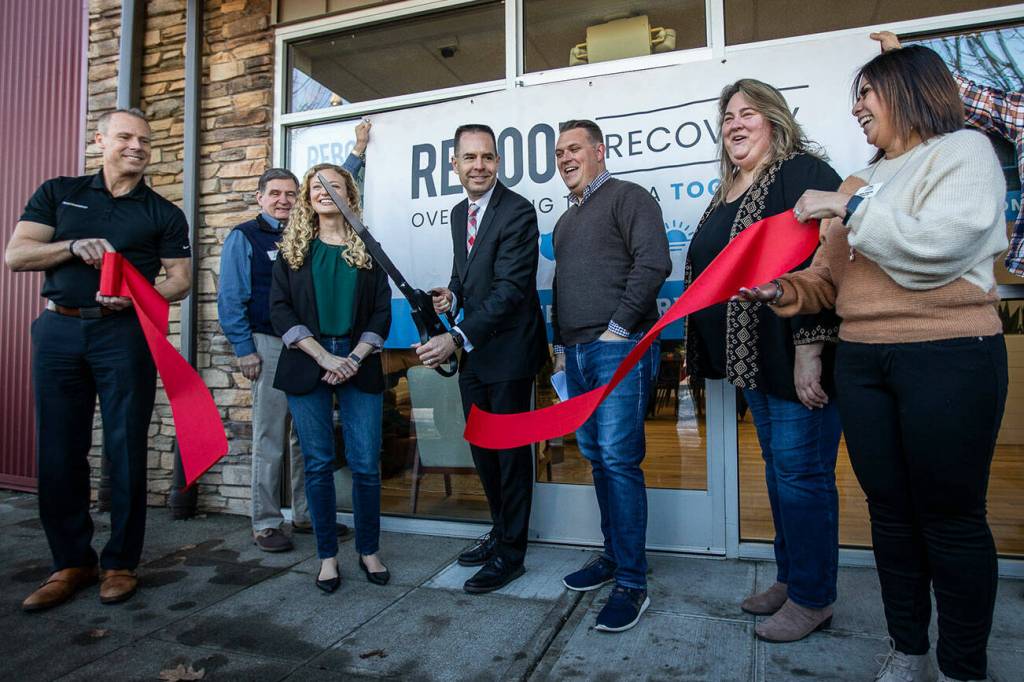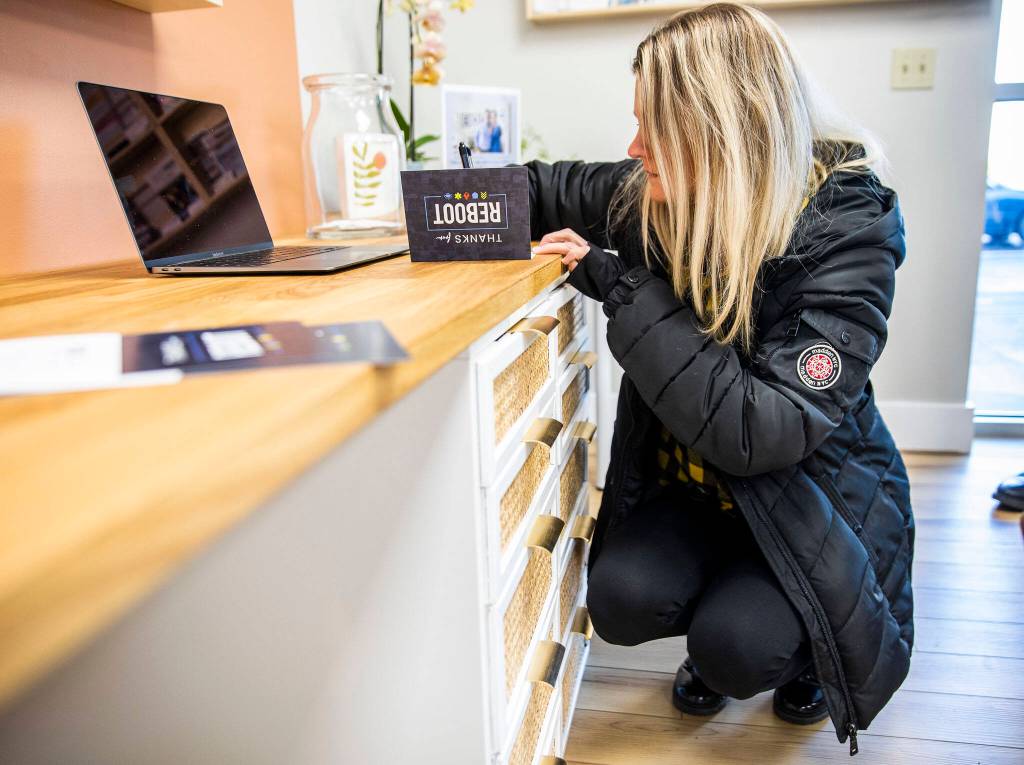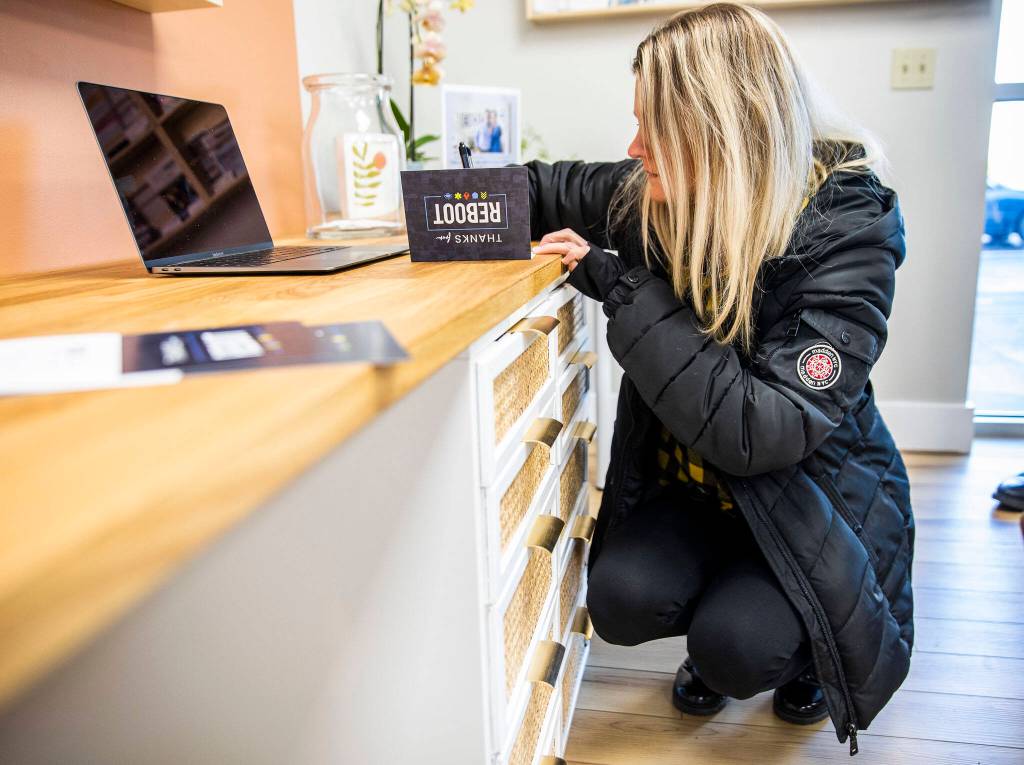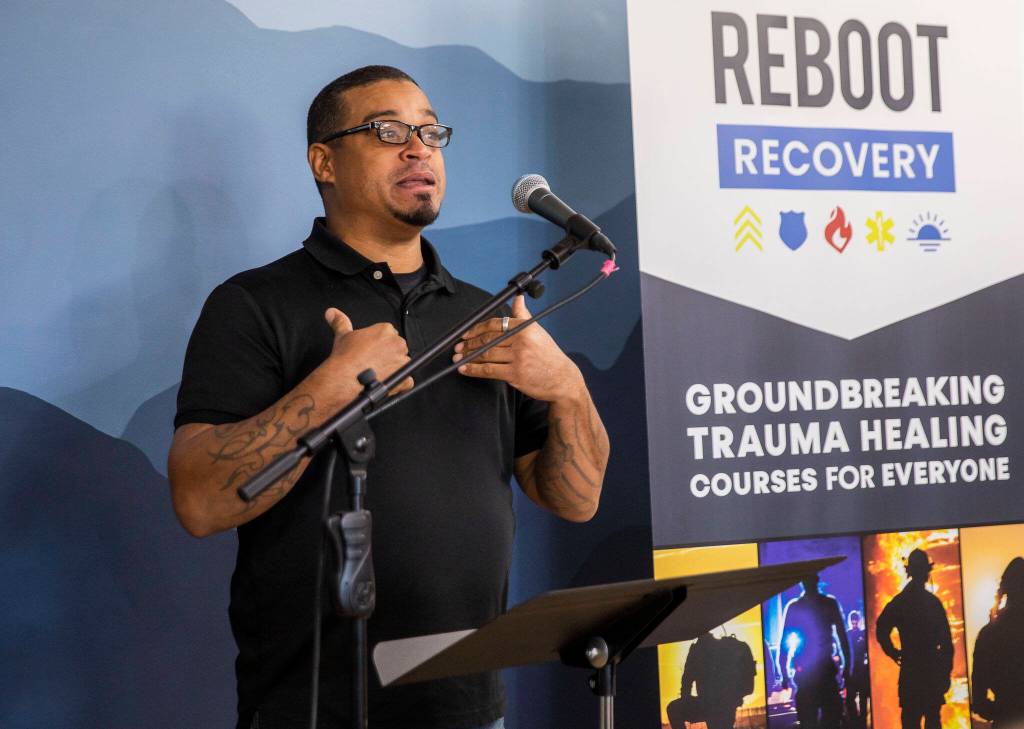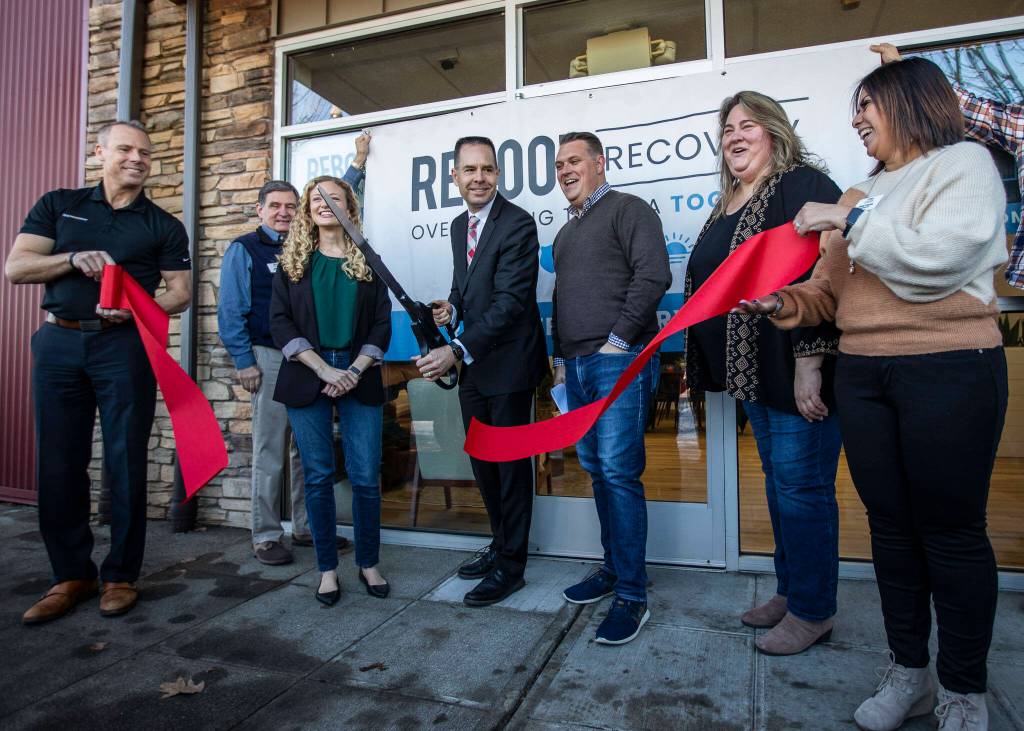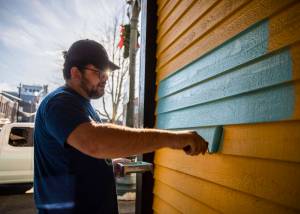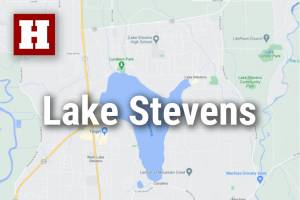‘Simple, but not easy’: New mental health center opens in Marysville
Published 1:30 am Tuesday, November 15, 2022






MARYSVILLE — For years, Gunnar Rauch felt like he was just shoving all his suffering out of sight.
He’d been through a lot. He was recovering from drug addiction, and he had previously struggled with homelessness. Rauch was now in a better situation, but sometimes it still felt like the only way he could survive was to tamp down the bad memories.
“You know when you were a kid, and your mom told you to go clean your room, but you just kind of stuffed all the mess under the bed or pushed it into the closet?” Rauch said. “All you could do was just hope your parents never looked.”
That changed when Rauch got involved with Reboot Recovery, a Christian faith-based nonprofit. His girlfriend Sandra Stringham found out about Reboot’s peer-led trauma recovery and support courses through church.
Rauch admits he didn’t really see the point when Stringham first dragged him along to Reboot’s new space in Marysville. But after a couple of weeks of attending classes, he said his eyes opened.
“And every week has been better and better since,” Rauch said.
On Monday, at a ribbon-cutting ceremony for Reboot Recovery’s new office at 221 State Ave. in Marysville, staff opened their doors with the goal of changing more lives. City leaders said the courses and support networks offered by Reboot are critically needed in Marysville and beyond. Services are offered in person and virtually. This office will be a hub for the Pacific Northwest.
Asked how many people have graduated from Reboot’s courses so far, co-founder Evan Owens rattled off the number — 17,834 — without hesitation. By 2025, the organization hopes to have reached 50,000 people. That’s about the same number of people who die by suicide each year in the United States, Owens said.
About 30 people, including peer leaders, students and social service providers, gathered in the new Reboot space Monday morning to celebrate its official opening. The unassuming location, in a strip mall next to the Marysville Albertsons, belies the welcoming sunlit atmosphere inside the office, decorated with a mural of mountain vistas in shades of blue and a miniature garden of moss and ferns. A bulletin board near the entrance was laden with local job listings and guides to food and housing programs.
Owens, who co-founded Reboot with his wife, Jenny, a decade ago, said the open, homey design of the office was a deliberate choice to defy the stereotype of support groups meeting in dank basements. He described the organization as a force for mobilization, something “entirely different” from the way people commonly perceive mental health treatment. Through weekly courses led by volunteers, Reboot aims to help people live with their trauma and build a better life, Owens said.
Courses are offered in person at Reboot offices, of which there are two others in Texas and Tennessee, or remotely via Zoom. While the programming incorporates Christian elements, Owens said the general curriculum is “accessible to everyone.” Specialized courses for veterans and first responders are also offered. Once students graduate from the 12-week course, they’re eligible to teach classes themselves as a peer leader, Owens said.
Reboot doesn’t intend to completely replace mental health treatment from a medical professional. Still, Owens said it’s an effective companion to treatment. And it’s often one of the most accessible alternatives, he said, when therapy or psychiatric help is out of reach.
Owens said the group chose Marysville as a regional hub for three reasons. First, the funding was there; grants from the Washington Health Care Authority and the William E. Wockner Foundation helped Reboot get off the ground quickly. Second, Owens and his staff quickly found tons of local support for the project, a factor he said was key to reaching the right people.
And finally, it was clear to Reboot staff that there was a desperate need for services like theirs in the Pacific Northwest. But they didn’t want to put down roots somewhere like downtown Seattle, Owens said, instead choosing to focus on “overlooked” areas that often lack the resources or accessibility needed to reach those who need help the most.
In a speech at the ribbon-cutting ceremony, Marysville Mayor Jon Nehring affirmed the city’s need for accessible mental health services and suicide prevention resources.
“Our police would tell you that over the last two to three years, calls for this type of thing have skyrocketed, and I mean double-digit percentage-wise skyrocketed,” Nehring told the crowd. “It’s very disturbing, whether it’s suicide or domestic violence or depression. It’s something the whole country is struggling with, and particularly in Marysville, I know it’s something that we’re very, very concerned about as a city.”
Nehring said in an interview after his speech that mental health-related emergency calls spiked drastically in Marysville during the COVID-19 pandemic. As restrictions eased, first responders saw those numbers “taper off” a bit, Nehring said, but they remain significantly higher than the pre-pandemic baseline.
Kathy Jo Kahn, Reboot’s regional outreach coordinator for Washington, is deeply familiar with the obstacles for those seeking help with trauma and mental health. She said she has been a part of at least 13 different faith-based recovery ministries over the years. But she knew when she first encountered Reboot’s work that there was something different about their approach.
“It’s simple, but it’s not easy,” Kahn said. “Any peer can learn how to lead, regardless of how broken they feel, and use that brokenness to help themselves and others. I’ve seen things happening here that I’ve never seen in other programs.”
Kahn first discovered Reboot through another recovery group she helped to lead. She was so inspired by their approach and results that she immediately set to work helping the organization find its new home in Marysville. She applied for instrumental grants, made connections with key community members and pinned down the location for the new office.
Kahn said she’s excited about Reboot’s potential to expand its reach in the Northwest, including possible integration with trainings for first responders and other professions that deal with trauma on a regular basis.
That potential is apparent to Stringham, too, who plans to integrate Reboot courses into programming at Esther’s Place, an Everett day shelter for unhoused women where she serves as manager. The possibilities are endless, she said, and she and Rauch both know firsthand the changes Reboot can make in a person’s life.
“We’ve both come from the bottom,” Stringham said. “But we’ve found a family here. We’re applying what we’ve learned to the rest of our lives. And it’s like a weight was lifted off our backs.”
Riley Haun: 425-339-3192; riley.haun@heraldnet.com; Twitter: @RHaunID.

